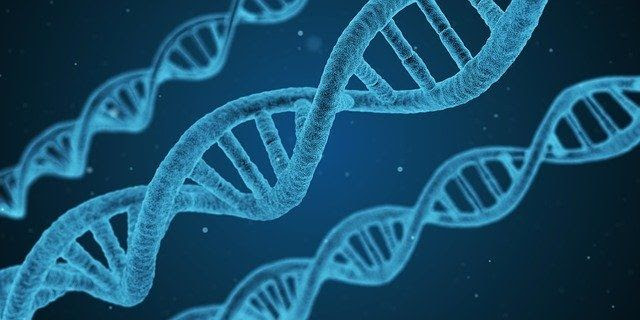

If you want to be healthy and you are fed up with the way you feel, what do you do? Perhaps you google healthy diets or healthy lifestyle and read the top posts. Perhaps you read a book with a title like ‘30 days to Vibrant Health’, or you hover over the magazines in the check-out line and see that some tell you to focus on meats and veggies and avoid dairy yet others promise you a toned and buff body by eating a grapefruit before each meal.
It’s so confusing – where do you start?
When Barbara Bolton came to see me, she seemed to do everything right. She exercised several times a week, ate a clean diet, got enough sleep and took time out for herself. But, she still did not feel well. She was carrying around some extra pounds and was suffering terribly from sinus congestion and allergies.
I suggested that she choose a wellness plan that included a genetic test. I ordered her a DNA test, which tests the body’s genetic response to key foods and exercise.
“I jumped at the chance,” she says. “I thought I’d love to have that kind of knowledge.”
After sending off a swab of her saliva, she received a report on her fitness and diet. She was impressed.
“I was like ‘wow’. They told me I don’t tolerate dairy and refined foods very well, and I respond better to high-intensity training than anything else.”
Three months later after following her Transformational Wellness Plan she has dropped from a size 12 to a size 10 and lost 15 pounds. She attributes her leaner figure to understanding more about her metabolic type and her genetic code.
“Without a shadow of a doubt it came down to knowing who I was at the molecular level. That knowledge combined with the genetic testing resulted in a wellness plan that met my specific health needs,” says Barbara who lives in Chambersburg, PA.
“It’s made me follow the right exercise plan and make small but effective changes to my diet.”
This is where personalized medicine comes in. It’s a rapidly advancing field of healthcare that is informed by each person’s unique clinical, genetic, genomic, and environmental factors. Because these factors are different for every person, the nature of diseases—including their onset, their course, and how they might respond to drugs, foods, lifestyle, supplements or other interventions—is as individual as the people who have them.
Everything about who we are is the unique combination of what we are born with – our genetics – and how we live – our environment.
The biggest ‘environment’ factor that we can control in our day-to-day lives is our diet, and indeed Ayurveda spends a lot of time on nutrition. So by understanding more about the static part, the genetics, we can better tweak the bit in our control -our diet and lifestyle.
Take for example something many of us take for granted: lactose tolerance. Most babies can digest milk without getting an upset stomach thanks to an enzyme called lactase. However, up until several thousand years ago, that enzyme was turned off once a person grew into adulthood. Yet today, 35% of the global population – mostly people with European ancestry – can digest lactose into adulthood without any problems. Why is this?
Because a mutation that first arose in ancient European farmers meant that, for some, that genetic ‘off switch’ was lost and they carried on producing milk-digesting lactase into adulthood. This happened completely by chance, but of course those people that could digest milk were at an advantage, particularly during times of famine or drought when the additional nutrients milk provides could be the difference between life and death. So the trait spread. It is the small changes that mutations cause that make each of us unique.
If your DNA suggests that you are more likely to be deficient in B vitamins, then you can pay attention to that in your daily life. Also knowing what your DNA says about your body’s food sensitivities, food breakdown, hunger, weight, and vitamin predispositions allows you to make smarter decisions about what you eat and what supplements you choose to buy, saving you time, energy, and money while getting the results you want faster.
However, the amount of information that personalized health tests can offer is limited at present because we still know very little about the effect of most SNPs (genetic variations called single nucleotide polymorphisms) and other types of genetic variation on a person’s health.
While there are a few conditions, such as lactose intolerance, for which the genetic variations are very clear and well understood, the same cannot be said for most other conditions. That said, some studies do suggest that this kind of analysis might work. For example, the University of Trieste and the IRCCS Burlo Garofolo Institute for Maternal and Child Health in Italy found that those following diets based on genetic analysis lost 33% more weight than a controlled group.
The Holistic Highway looks at how the entire body works together, and while we measure more than 60 nutrition-related genetic biomarkers, these recommendations are and should be based on your entire metabolic type, not just your DNA.
Let’s look at Tony: Even though Tony bicycles a few times a week, he says “I carry an extra couple of pounds and I was curious to learn more about myself.“
He discovered that he’s caffeine sensitive, his diet needs to include more plant-based food, and his body is slow at processing fats. While we were still waiting for the genetic test results, Tony opted to start his personalized meal plan based upon his Ayurveda dosha of Kapha -Pitta.
“An interesting thing happened,” he enthuses. “I lost four pounds in a few days. I learned portion size and how much more veggies I needed in a serving. I started waking with more energy, my gurgly tummy settled down” and he goes on to say that in two months he has lost about 11 pounds.
Okay, I hear you say….Hang on a minute aren’t you into Ayurveda – then why are you talking about genetics?
Ayurveda has always taken an individualized approach. It looks through the lens of doshas and metabolic types and recognizes that no two people are the same. Our current healthcare system has specialized and subspecialized to such an extent that we no longer see the whole person. And within that framework, it’s easy to see how we have standardized our nutritional needs and lifestyles and our medications to a “One Size Fits All” approach. This is wrong.
Nearly all nutrition research and diet information doesn’t look at what actually makes us who we are. We are all different, and inherently we know this to be true. We all know someone who can eat all the pasta they like without putting on weight (and that might be you), whilst some people only need to think about bread to put on weight (that’s me). Part of these differences will be due to small changes in our genes which enable us to tolerate carbohydrates better or worse – and knowing about these differences can be useful when it comes to choosing the best nutritional plan for you.
However, it’s important to know that your genes do not determine your lot in life.
You can change your genes – through diet and lifestyle, and it is this exciting field, now called epigenetics that Ayurveda has always worked in.
It is clear that a one-size fits all approach to health and nutrition is failing us. No wonder we are confused and no wonder so many of us struggle. We are not one size fits all. Adding genetic testing is a really great way to further improve the quality of your Ayurveda health plan because it is tremendously exciting that we live in a time where we can combine the eastern time-tested wisdom of Ayurveda and the technology of western science.
If you would like to talk more about the benefits of a genetic test for your health goals, please schedule a complimentary consultation to discuss what would be best for you.

The Holistic HIghway integrates traditional Western medical practices with Ayurveda medicine, creating a focus on prevention through nutrition, diet, and exercise; use of the latest genetic testing and other diagnostic techniques; and prescribed combinations of botanical medicines, supplements, therapeutic diets, detoxification programs, or stress-management techniques.

Integrative Health Expert | Ayurveda Practitioner | Author | Speaker
Kerry is a globally recognized leader in integrative medicine and the science of health known as Ayurveda. She is passionate about raising awareness of the need for a change in contemporary medicine that focuses on patient empowerment and a health-based (rather than disease-based) medical system.
Kerry is connected with The University of Pittsburgh Center for Integrative Medicine and remains a pioneer in the field of integrative medicine where she has developed a personalized system to manage chronic disorders by incorporating fundamental changes in diet, behavior, and stress while focusing on genetics.
This individualized program is so successful that many of her clients have achieved maximum healing and vitality after years of chronic problems!
More to Explore
Contact
Disclaimer
The sole purpose of all the website content is to educate and provide information about Integrative Health, Genetics and Ayurveda.This information is not intended for use in the diagnosis, treatment, cure. or prevention of any disease.
Stay Connected